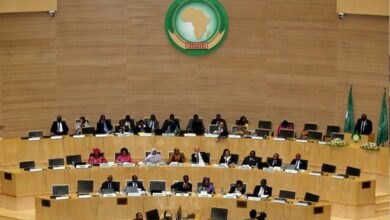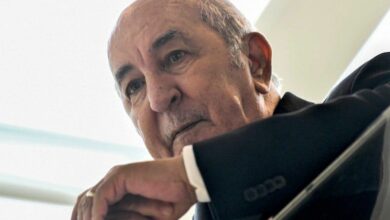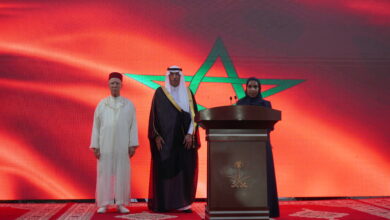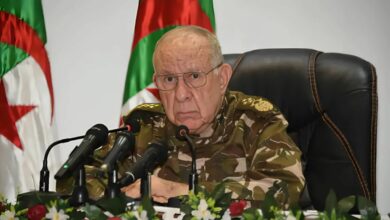King Mohammed VI… When a Speech Ends with a Verse that Slaps Traitors and Awakens Consciences
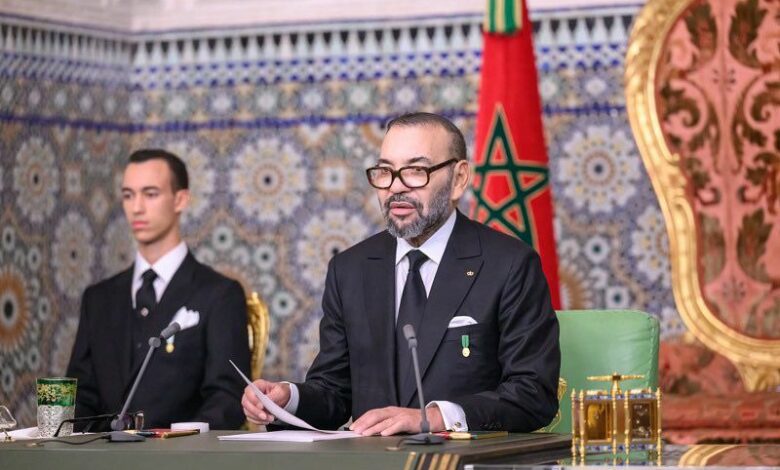
By: Ghaïtha Hafiani – ALDAR
In his latest speech, the conclusion delivered by His Majesty King Mohammed VI was far from a simple recitation of a Quranic verse, as some might naively believe. It was a deliberate, powerful choice, rich in symbolism, encapsulating in a divine phrase what dozens of pages of political rhetoric could never fully express. The verse: “Let them worship the Lord of this House, who has fed them against hunger and secured them against fear” was not merely a call for reflection—it was a firm warning and a patriotic lesson in gratitude, directed at those who have sold their conscience and sought to undermine the foundations of the state from within.
In a time marked by growing regional and global challenges, intensified media campaigns, and attempts to erode national constants, the monarch did not respond with blame or condemnation, but with the language of faith. He invoked the blessings of security and sustenance—cornerstones of Morocco’s legitimacy for centuries. The message was crystal clear: to deny the blessings of the homeland is to betray it. To forget its value is to descend into chaos and self-destruction.
The verse places things in their true context: “He has fed them against hunger”—at a time of rampant inflation, scarcity of resources, and disruption of global supply chains, Morocco continues to maintain food security, preserving its economic sovereignty and decision-making independence, free from humiliating dependencies or political subjugation. It is a message to those who underestimate the quiet achievements not trumpeted by propaganda, but felt daily in the stability of markets and the preservation of citizens’ purchasing power amid global turmoil.
As for “He secured them against fear”, it is a symbolic blow to those who downplay the gift of stability, while neighboring countries descend into chaos, internal divisions, and bloodshed. Despite the volatile regional environment, Morocco remains a model of public security, thanks to the vigilance of its security apparatus, the unity of its institutions, and the loyalty of its people. The royal message here is a stern warning to anyone attempting to import disorder, incite rebellion, or ignite the fire of division.
“Let them worship the Lord of this House”—this is not merely a call to religiosity, but a reminder of the very source of sovereignty in the Kingdom: moderate Islam, the Commandership of the Faithful (Imarat al-Mouminin), and the sacred bond of allegiance. This triad is untouchable, and any attempt to undermine it is a direct threat to the nation’s stability. It is the foundation of Moroccan identity and the cement of unity between the Throne and the people. Attacking it is akin to dismantling the very structure of the Moroccan state.
Far from traditional political discourse, the King demonstrated rare finesse in symbolic language that pierces both hearts and minds. He did not lash out at his critics with insults—he turned them back toward their conscience, reminding them of divine favors: Where is your gratitude for these blessings? Why sow discord when you should be preserving the priceless gift of peace?
At the heart of this message are clear signals directed at the fifth column, at purveyors of doom-laden narratives, at those who feed off doubt and erode trust in state institutions—traitors who sell out their country for personal gain or foreign agendas. The message is firm: treachery will not be tolerated, ingratitude will not be rewarded, and the state will not turn a blind eye to those who threaten its unity and security.
In this context, the Quranic verse acts like a mirror: those truly loyal will see in it a call to gratitude and reflection; conspirators will feel it as a jarring warning—a wake-up call to their conscience before a disastrous downfall.
The King did not end his speech with that verse by coincidence. He closed the door on all traitors and opened the door of awareness to those who had been heedless. He affirmed that the real threat does not lie in the lack of projects or delayed development, but in the absence of loyalty and a failure to recognize the value of blessings.
This is a speech that transcends politics—it reaches the very essence of the bond between a citizen and their homeland… a bond built on loyalty that only treason can sever, and a blessing that demands nothing less than sincere gratitude.

